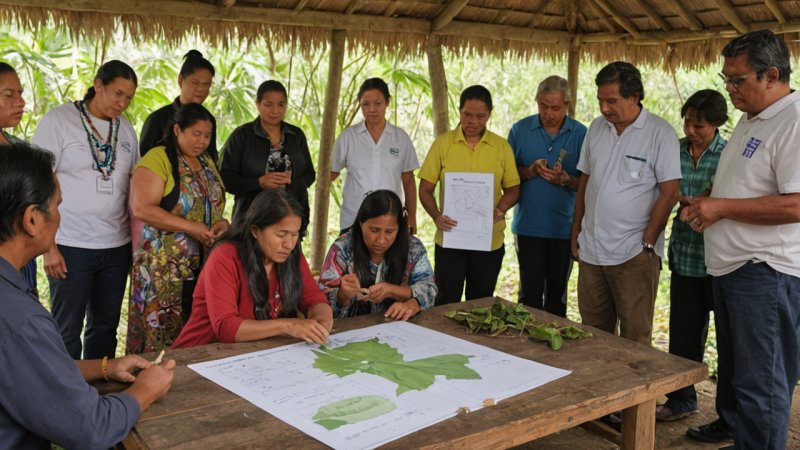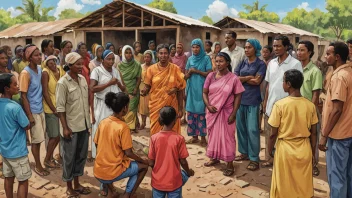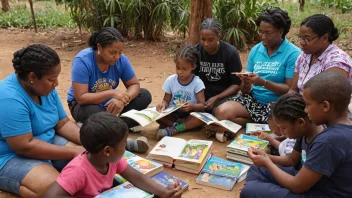In an increasingly globalized world, the challenges faced by communities in crises are often multifaceted, requiring innovative and culturally sensitive approaches to humanitarian aid. While modern techniques and technologies play a crucial role in alleviating suffering and rebuilding lives, there is a growing recognition of the value of traditional knowledge in these efforts. Traditional knowledge encompasses the skills, experiences, and insights that indigenous and local communities have developed over generations. This article explores the significance of integrating traditional knowledge into humanitarian aid initiatives, highlighting how it can enhance community resilience, promote sustainable practices, and ultimately lead to more effective and respectful interventions.
Understanding Traditional Knowledge
Traditional knowledge is often rooted in the cultural, spiritual, and historical contexts of a community. It encompasses a wide range of practices, including agricultural techniques, medicinal uses of local plants, disaster preparedness strategies, and social governance structures. This knowledge is typically passed down orally through generations, making it a living, evolving body of information that reflects the unique relationship between a community and its environment.
The Role of Traditional Knowledge in Humanitarian Aid
Integrating traditional knowledge into humanitarian efforts can provide several advantages. Firstly, it can enhance the effectiveness of aid interventions by ensuring they are culturally appropriate and contextually relevant. For example, in regions affected by natural disasters, local communities often have their own traditional methods for building resilient structures or managing resources in a sustainable manner. By acknowledging and incorporating these practices, aid organizations can foster community ownership and engagement, leading to better outcomes.
Promoting Community Resilience
Communities that possess strong traditional knowledge systems are often more resilient in the face of crises. This resilience stems from their ability to adapt to changing circumstances using their own resources and skills. For instance, indigenous agricultural practices may be better suited to local environmental conditions than modern techniques introduced by external aid organizations. By integrating traditional agricultural knowledge, humanitarian efforts can support food security initiatives that are more sustainable and better aligned with local needs.
Case Studies of Successful Integration
There are numerous examples of humanitarian initiatives that have successfully integrated traditional knowledge. In the aftermath of the 2010 earthquake in Haiti, organizations like the Haitian Red Cross collaborated with local communities to develop disaster response strategies that drew on traditional practices. By incorporating local knowledge about building techniques and community networks, these initiatives not only provided immediate relief but also helped lay the groundwork for long-term recovery.
Another notable example comes from the Amazon rainforest, where indigenous communities have been working with international NGOs to combat deforestation. By leveraging traditional ecological knowledge, these communities have developed sustainable land management practices that protect biodiversity while also providing livelihoods. This collaboration not only empowers local communities but also contributes to global environmental goals.
Challenges to Integration
While the integration of traditional knowledge into humanitarian aid offers many benefits, it is not without challenges. One significant hurdle is the potential for miscommunication between aid organizations and local communities. Often, external agencies may underestimate the value of traditional practices or fail to recognize their significance. This can lead to the imposition of solutions that do not resonate with the community, resulting in a lack of trust and cooperation.
Building Trust and Collaboration
To overcome these challenges, it is essential for humanitarian organizations to build genuine relationships with local communities. This involves engaging in open dialogue, actively listening to community members, and respecting their perspectives. By fostering trust and collaboration, aid organizations can create an environment where traditional knowledge is valued and integrated into the aid process.
Ways Individuals Can Get Involved
Conclusion
The integration of traditional knowledge into humanitarian aid is not just a matter of enhancing effectiveness; it is a fundamental step towards ensuring that aid is respectful, sustainable, and empowering. By valuing and incorporating the wisdom of local communities, humanitarian organizations can work towards building resilience, promoting social justice, and fostering a more equitable world. As individuals, we can play a role in this process by advocating for the recognition of traditional knowledge and supporting initiatives that prioritize community-led approaches to recovery and development.






